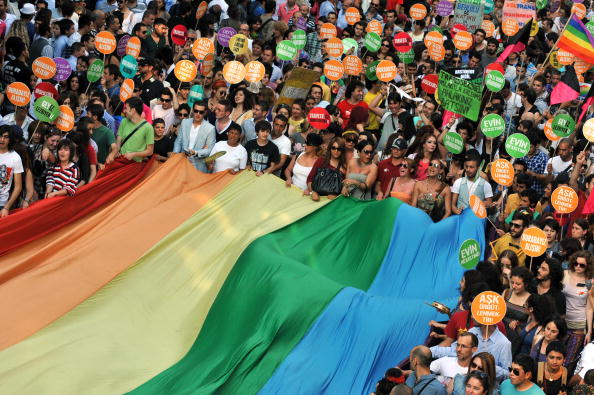
Love is a (human) right, not a wrong and protecting the rights of same-sex couples in the U.S. is a step towards recognizing that fact (Photo Credit: Mustafa Ozer/AFP/Getty Images).
By Emily McGranachan, Member of Amnesty International USA’s LGBT Human Rights Coordinating Group
Today the Supreme Court of the United States began hearing arguments on two pivotal cases involving lesbian, gay, bisexual and transgender (LGBT) rights. The focus of today’s hearing was on California’s Proposition 8, which wrote discrimination into the California Constitution by defining marriage in the state as between one man and one woman. The state constitutional amendment has been found unconstitutional by a federal appeals courts and supporters of marriage equality hope it will be struck down entirely.
Tomorrow the court hears arguments on the Defense of Marriage Act (DOMA), which limits federal recognition of marriage to heterosexual couples. There is a great deal in the news about both cases and what they could mean for LGBT rights. The decisions made by the Supreme Court will have real impacts on individuals, children, and families, regardless of their sexual orientation.

